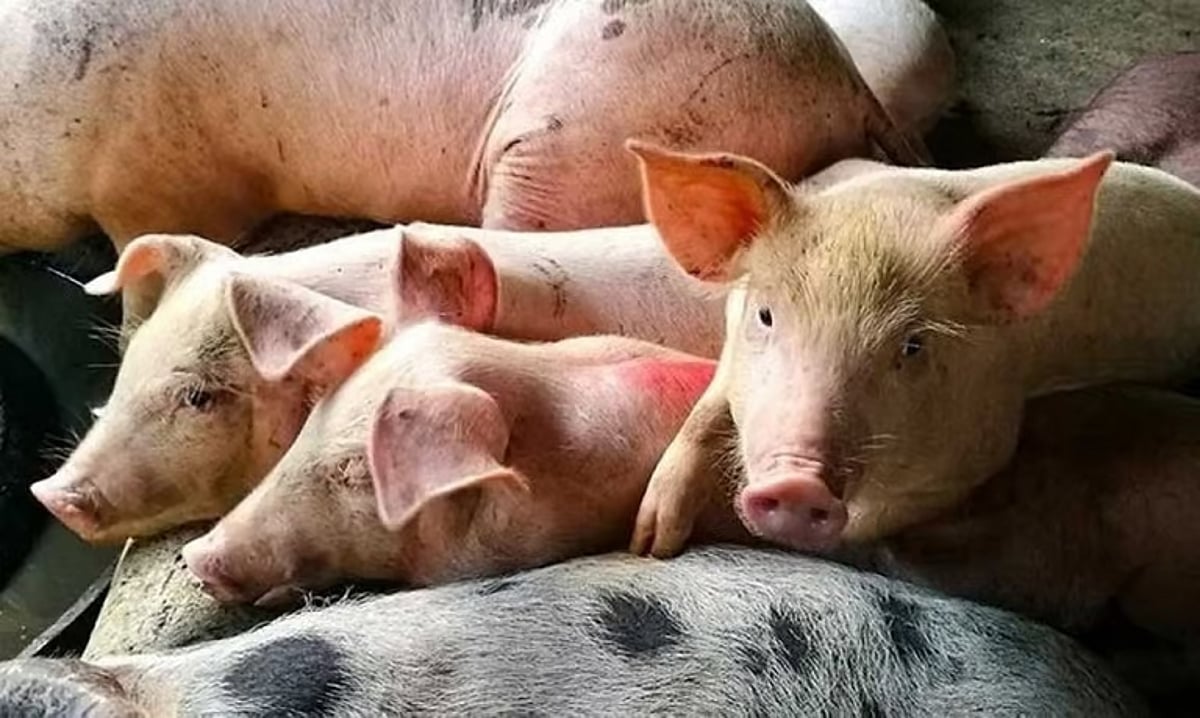IN A bid to revive the swine industry in the southern Philippines, Maharlika Agro Ventures Corporation is partnering with Denmark-based DanBred to establish a large-scale genetic pig farm aimed at supporting repopulation efforts in the wake of African Swine Fever (ASF).
Vicente Lao, chairman and chief executive officer of Maharlika Agro Ventures Corporation and New Zealand Honorary Consul for Mindanao, said earlier this year that the P2.8 billion project is being developed in Gingoog City, Misamis Oriental.
The facility will house a 2,500 sow-level Grandparent Generation (GGP) genetic farm that will cater to producers across Visayas and Mindanao.
Lao shared with Davao media during the Business Matters media forum that this farm will focus on producing genetically superior breeding stock that can serve both commercial and backyard swine producers. The project positions Maharlika Agro as the exclusive distributor of DanBred’s high-quality pig genetics in the southern regions of the country.
The first shipment of purebred pigs, consisting of male and female lines, will arrive at Davao International Airport on June 20, 2025. These animals represent some of DanBred’s highest-performing genetic lines and are expected to significantly boost the reproductive and production efficiency of local herds.
Lao noted that with the use of these superior sows, farmers can expect higher productivity, with litters reaching up to 16 piglets per cycle. This is a significant improvement compared to traditional sow performance in the Philippines.
He emphasized that the initiative is part of Maharlika Agro’s broader contribution to national efforts aimed at rebuilding the swine industry and addressing food security concerns.
The Philippines suffered major losses due to ASF, which drastically reduced the sow population from 1.5 million to approximately 700,000, leading to a surge in pork prices and prolonged supply shortages.
Lao pointed out that backyard farms responsible for more than half of the country’s pork production were hit hardest by ASF due to limited access to biosecurity resources. He explained that many smallholder farmers rely on independent traders or “biyaheros” to market their pigs. These traders move from farm to farm and may unknowingly spread the ASF virus, accelerating outbreaks.
According to Lao, government authorities have been encouraging a shift toward more organized and biosecure farming operations. Corporate-scale farms, which are able to invest in proper disease control protocols, have proven to be more resilient during the ASF crisis.
The Maharlika DanBred genetic farm seeks to make these advantages more widely accessible by producing high quality gilts for distribution even to smaller producers. Lao stressed that introducing strong genetic lines into local herds is essential to both short-term recovery and long-term sustainability.
Modern swine genetics
DanBred is a global leader in swine genetics with over a century of breeding experience. The company is known for developing pigs with superior reproductive traits, feed conversion efficiency, and meat quality.
DanBred’s genetics are used in over 60 countries, and their breeding program is based on continuous data-driven improvement to deliver maximum value to farmers.
This partnership with Maharlika Agro marks DanBred’s first exclusive distribution arrangement in Visayas and Mindanao. It is a sign of confidence in the Philippines’ ability to modernize its livestock production and integrate global best practices in the face of ongoing animal health challenges.
ASF recovery and the road ahead
ASF, which first struck the Philippines in 2019, continues to impact swine production, especially in areas where small-scale backyard farms dominate. The disease has forced many producers out of business and created long-term disruptions in the local pork supply chain.
Experts believe that recovery will require a combination of science-based genetic improvements, better farm management, and strong public-private collaboration.
Projects like the Maharlika DanBred farm represent a proactive approach to transforming the industry from within offering farmers not just animals, but improved tools to build a more resilient future.
As Lao noted, while it will take time to restore the swine population to pre-ASF levels, this investment provides a solid foundation for rebuilding with better genetics, stronger systems, and renewed confidence in local agriculture. DEF
